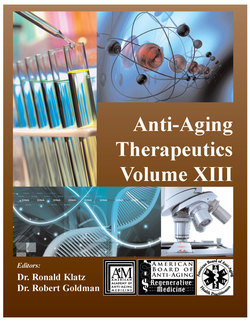Читать книгу Anti-Aging Therapeutics Volume XIII - A4M American Academy - Страница 51
На сайте Литреса книга снята с продажи.
Wine, Resveratrol, and Breast Cancer: Special Considerations
ОглавлениеOne of the first cell lines to be proven sensitive to resveratrol is breast cancer, and the effect applies regardless of ER status. However, the relationship of wine consumption and breast cancer has been problematically reported, causing confusion as to whether resveratrol is useful or even safe for breast cancer patients, and whether wine consumption has the same risk as alcohol. Several meta-analyses have been done on the subject of alcohol and breast cancer, with a linear dose-response correlation generally observed. More recent studies employ mathematical modeling to account for the well-known self-reporting bias on drinking levels, but the effect of moderate consumption remains at least in part a matter of extrapolation. Given the anti-cancer activity of resveratrol and other wine phenolics in vitro, the question of whether wine drinkers obtain any benefit in terms of relative cancer risk has been of intense interest.
Conflicting results from the various studies that have attempted to stratify results for different types of alcohol consumed has led to even greater confusion. A 2010 study from the Fred Hutchinson Cancer Research Center in Seattle concluded that there was “no difference between red wine or white wine consumption and breast cancer risk” while a 2009 report from Kaiser-Permanente found “red wine carries the same risk of breast cancer as white wine.” These authors went on to state that “women who consume any type of alcohol are at greater risk for breast cancer” and there is “no difference between types of drinks.” Earlier studies suggested that as little as 1.5 glasses of wine a day was enough to double lifetime risk of breast cancer.
Yet closer reading of the Fred Hutchinson Center study reveals that “Wine consumption was not associated with risk of breast cancer and no differential was observed between red and white wine.” The reason for the lack of difference in risk was that there was no increased risk in the wine drinking cohort for either type. About the same time as the Kaiser-Permanente results were being presented, a new meta-analysis from Japan was published that concluded that “epidemiologic evidence on the association between alcohol drinking and breast cancer risk remains insufficient” despite the dozens of studies available for review.
Studies from European populations, meanwhile, give a different picture. A 2008 report from the University of Montpelier in France found that “women who consumed at least a glass of wine a day had about 50% less breast cancer than nondrinkers.”17 Contradictory results such as these can best be explained by differences in the study populations rather than as statistical outliers. In order to know the true effect of wine consumption, and by inference wine’s constituent polyphenols, a study population must have a consistent drinking pattern; for example one glass of red wine daily, with dinner, rarely in excess, and generally not overlapping with other types of alcoholic beverages. Traditional lifestyles in southern France fit this description, while American and other populations have a more mixed drinking pattern. In contrast to the Mediterranean lifestyle, the woman who consumes a glass or two of red wine on a daily basis and nothing else is uncommon, despite indicating a preference for wine in survey responses. On balance then, consideration should be given to giving greater weight to the European data.
What does this mean to the woman concerned about alcohol and breast cancer risk? A case could certainly be made for allowing a glass or two of red wine without concern about added risk, and perhaps even some benefit in terms of reduced risk applies. Resveratrol is however an ER agonist, so supplementing resveratrol in place of a healthy drinking habit may have greater risks for certain types of breast cancer. This remains to be clarified.
